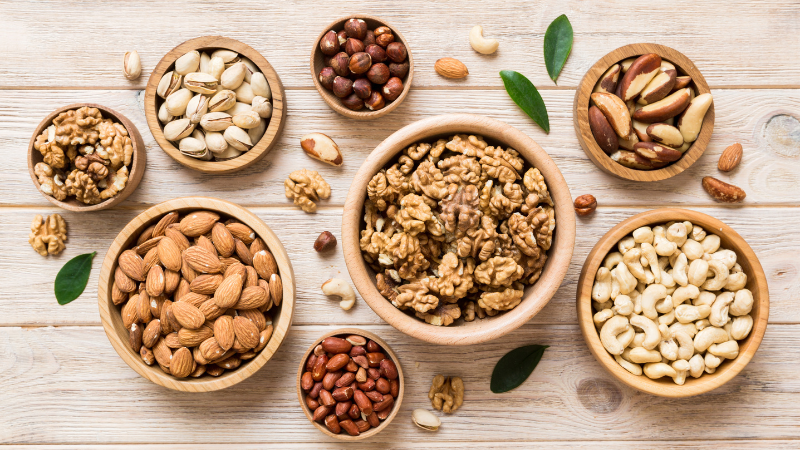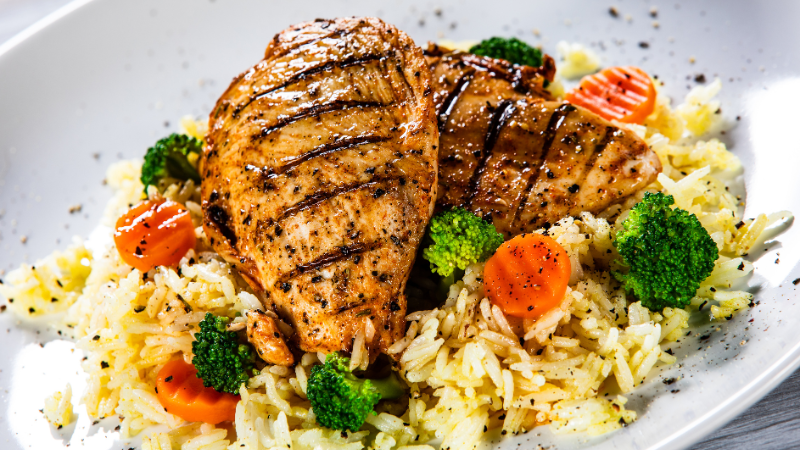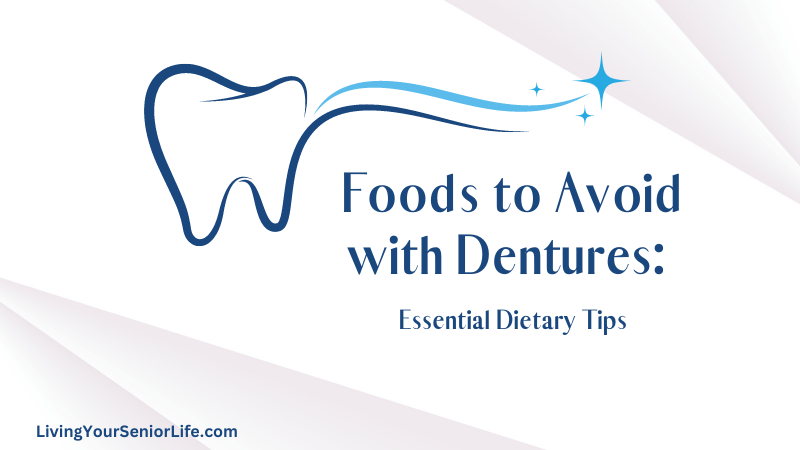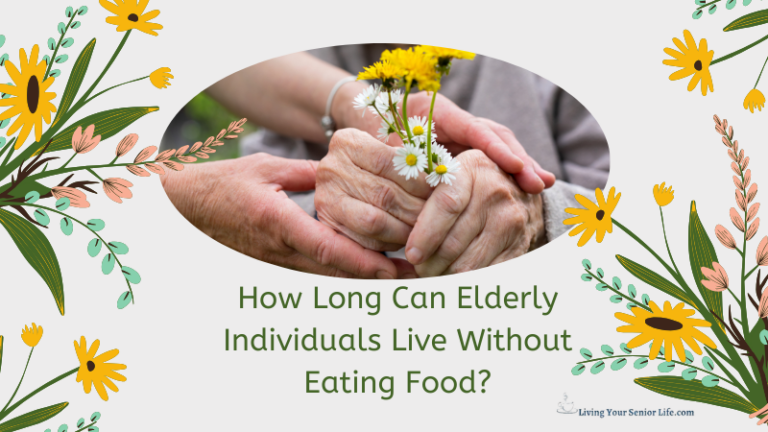Adjusting to life with dentures can be a significant transition, especially when it comes to eating. While dentures allow you to enjoy many of your favorite foods, there are certain items that can cause discomfort, damage your dentures, or pose a risk of dislodging them. Knowing which foods to avoid with dentures can help you maintain them in good condition and enjoy a comfortable eating experience. In this post, we’ll explore the types of foods that those with dentures should steer clear of and provide tips for maintaining a denture-friendly diet.
Key Takeaways:
- Avoid hard and sticky foods to prevent denture damage.
- Choose softer foods and cut them into small pieces for easier eating.
- Maintain good oral hygiene and have regular dental check-ups.
Foods to Avoid with Dentures

When you have dentures, choosing what to eat becomes crucial for maintaining your dental appliances and comfort. It’s important to avoid certain foods that can damage dentures, be difficult to chew, or disrupt their stability. Here is a list of foods as examples that should be avoided.
- Sticky Foods: Caramel, toffee, chewing gum, sticky gummies, and other sticky candy can adhere to dentures and cause them to dislodge and make them hard to clean.
- Hard Foods: Nuts, hard candies, popcorn kernels, and hard bread crusts can crack or damage your dentures or cause discomfort.
- Chewy Foods: Tough meats like pork chops and steak, and chewy candies can put excessive pressure on dentures and gum tissue causing sore spots.
- Foods with Small Seeds: Sesame seeds, poppy seeds, and raspberry seeds can get trapped under dentures and cause irritation.
- Crunchy Vegetables: Raw carrots, celery, and other hard, crunchy vegetables can be difficult to chew and may cause discomfort.
- Corn on the Cob: Biting into corn on the cob can dislodge dentures.
- Whole Fruits: Whole apples or other hard fruits should be sliced into smaller pieces before eating.
- Peanut Butter: Its sticky texture can adhere to dentures and be challenging to clean off.
- Tough Bread: Crusty bread, bagels, and other tough bread can be difficult to bite and chew.
- Nuts and Seeds: These can be hard and small pieces can get stuck under dentures.
Foods You Can Enjoy With Dentures

All is not lost there are plenty of foods you will still be able to enjoy. Here is a list of foods that are generally easier to eat and enjoy if you have dentures:
- Soft Fruits: Bananas, melons, and canned fruits are easy to chew and gentle on dentures.
- Cooked Vegetables: Steamed, boiled, or roasted vegetables like carrots, peas, and squash are soft and easy to eat.
- Soft Proteins: Ground meats, fish, tofu, scrambled eggs, and soft-cooked chicken are easier to chew.
- Dairy Products: Yogurt, cheese, and soft cottage cheese provide protein without requiring much chewing.
- Pasta and Rice: These are soft and easy to manage with dentures.
- Soups and Stews: These are not only soft but also provide hydration and nutrients.
- Mashed Potatoes: A classic soft food that is easy to eat with dentures.
- Soft Bread and Pastries: Soft, moist bread, muffins, and pancakes are usually safe to eat.
- Smoothies: These can be made with a variety of fruits and vegetables and are easy to consume.
- Oatmeal and Cereals: Softened cereals, oatmeal, and porridge are gentle on dentures.
- Puddings and Custards: These are smooth and require minimal chewing.
- Soft Desserts: Ice cream, mousse, and jello are easy to eat and can be enjoyed without worrying about dentures.
Video: Foods To Avoid With Dentures
Adapting Foods for Denture Wearers
Adapting your food choices and preparation methods can make eating more comfortable when you have dentures. Consider the texture and type of food to ensure meals are pleasurable and easy to manage.
Altering the Texture of Challenging Foods
Transforming the texture of hard or tough foods can help you enjoy a wider variety of meals. Cooking vegetables like carrots and broccoli until soft can make them easier to chew without placing uneven pressure on your dentures. Opt for slow-cooked meats which become tender and less taxing on your dentures. Swapping crunchy fruits for ripe fruits like bananas and mangoes can also reduce discomfort and the risk of denture damage.
Ground meat is a great alternative to tougher cuts like steak and chicken breast. Using a food processor to grind meat before cooking helps create a texture that is kinder to your dentures. Additionally, mashed versions of regular foods, such as mashed potatoes instead of raw potato sticks, ensure you avoid any unnecessary strain on your full or partial dentures.
Creative Culinary Solutions
Creative preparation methods can transform potentially difficult foods into denture-friendly options. For instance, blending ripe fruits and vegetables into smoothies provides a nutritious alternative that requires no chewing. Soft fruits like berries and citrus can be added for variety and flavor without challenging your teeth.
For new denture wearers, consider smaller pieces or bite-sized pieces of your favorite foods. This approach makes it easier to chew evenly across both sides of your mouth, reducing denture discomforts. Using a denture adhesive can also help keep your dentures in place, especially when enjoying foods that might otherwise be sticky, like peanut butter or cheese spreads.
Softening dry foods like whole-grain bread by dunking in soup can be beneficial. For those with a sweet tooth, try denture-friendly alternatives like custard, yogurt, or ice cream instead of sticky candies or hard candies. By making slight adjustments and exploring new ways of food preparation, you can enjoy a diverse and balanced diet while maintaining good oral health.
Foods to Soothe Sore Gums
Certain foods can soothe sore gums and make eating less painful. Soft foods like mashed potatoes, scrambled eggs, and yogurt are gentle on your gums and require minimal chewing. These softer foods can help ease the adjustment period when wearing dentures for the first time.
Slow-cooked meats like tender chicken or beef can be easier to chew and less likely to cause pain. Make sure to cut them into bite-sized pieces to avoid straining your gums. Cooking vegetables until they are soft is also a good idea.
Cold foods can help numb pain and reduce inflammation. Ice cream, smoothies, and chilled dairy products can offer immediate relief. Avoid hot foods and spicy foods as they can irritate sore gums and worsen discomfort. Drinking plenty of water is also beneficial to keep your mouth hydrated and promote good oral health.
Final Thoughts
Navigating your diet with dentures doesn’t have to be challenging. By avoiding sticky, hard, chewy, and seed-laden foods, you can protect your dentures and ensure a more comfortable eating experience. Focus on incorporating soft, nutritious foods that are easy to chew and enjoy. Remember, your dentist is a valuable resource for personalized advice on managing your dentures and diet. With the right choices, you can continue to enjoy a varied and satisfying diet without compromising your dental health.







